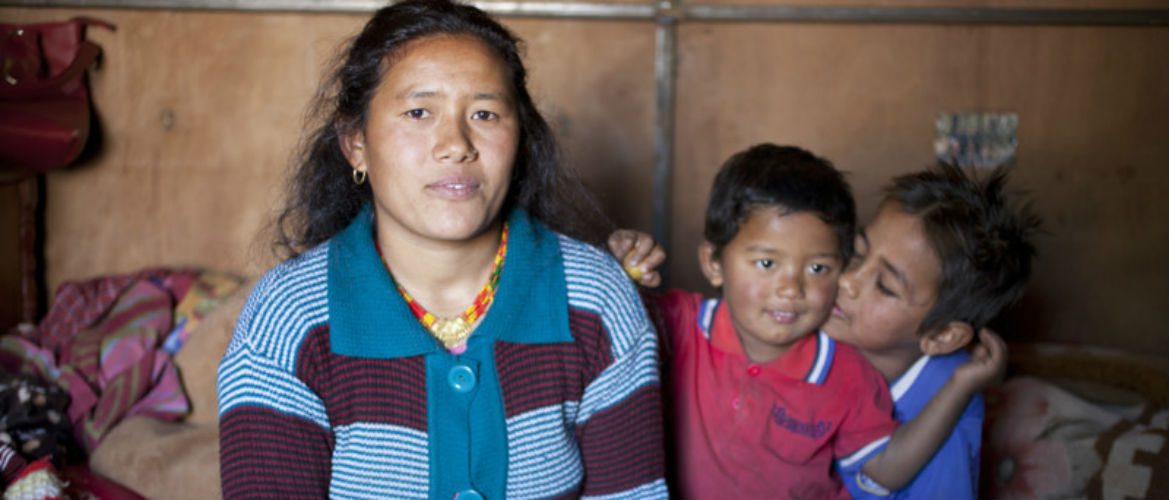Lives were lost, homes reduced to rubble, and livelihoods shattered — but Muna survived. And amid the chaos, she welcomed her second son into the world.
“I was taken to the hospital for the delivery of my child, and there was another earthquake that night,” Muna (pictured above) recalls. “Everyone ran out, leaving us in the hospital.”
Muna gave birth to her son during the earthquakes that rocked Nepal in 2015. But getting through labour was just one of her worries. When she took her newborn home, the nearest water source had dried up.
Muna says, “In our place here, finding water was really difficult. We had to go downhill to get water. We had to carry water from there.”
Muna was one of many who relied on this water source during that chaotic time, so she often had to queue for her ration of water.
“If we could fill our pot as soon as reaching there, then we could be back home in 40 to 45 minutes,” she explains. “But if we had to wait in the queue, then it would take one to one-and-a-half hours to get back.”
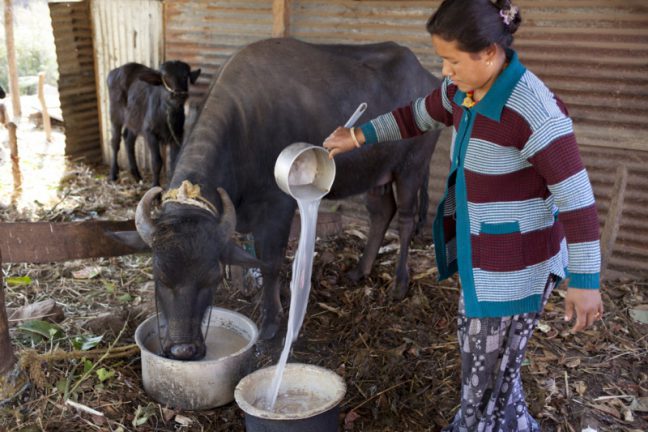
“We would need four to five water pots for the family, and then four to five pots for the cattle — so altogether we
had to make four to five trips a day.”
Oxfam responded immediately to the 25 April earthquake, delivering vital assistance in seven of the 14 most affected districts in Nepal: Gorkha, Nuwakot, Dhading, Sindhupalchowk, Kathmandu, Lalitpur and Bhaktapur.
In the first three months after the disaster — known as “the emergency period” — we provided emergency food, water, shelter, latrines and hygiene and sanitation training for more than 400,000 people across these districts.
Muna was one of those people.
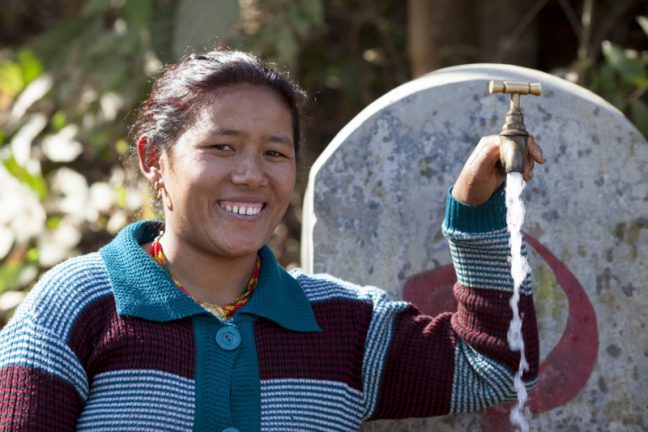
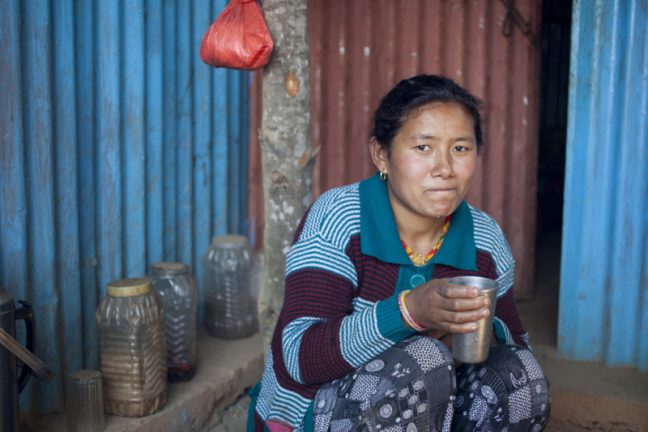
Together with local partners, we gave Muna’s family emergency supplies and fixed the water supply near their home, so now they have clean water on tap.
“I cannot even imagine myself being able to live here if the tap hadn’t been rehabilitated,” Muna says. “Life would have been really hard. Even for a single person, you need water — and I am a mother of a child, so I need more water.”
“At that time, I was not in the condition that I could go and fetch water myself … So it would have been impossible for me to live here, if the tap was not there.”
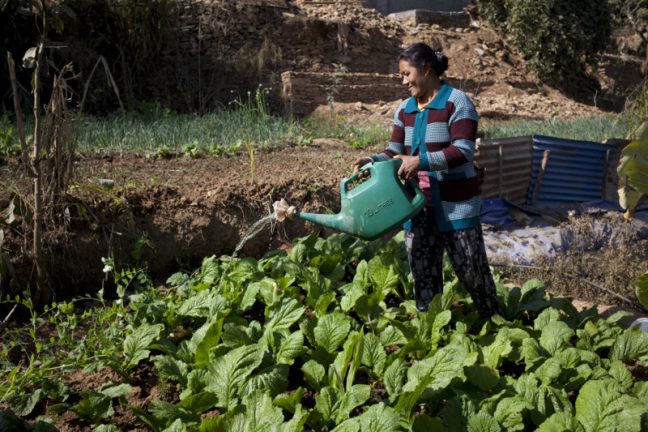
Now, Muna has easy access to clean water and a new lease on life. She can water the vegetable garden, sustain the cattle and keep her children clean. With clean, safe drinking water at their fingertips, Muna’s family is less vulnerable to waterborne diseases, like diarrhoea or skin conditions.
In fact, Muna’s precious baby (pictured below) has grown up strong and happy — he’s a picture of health.
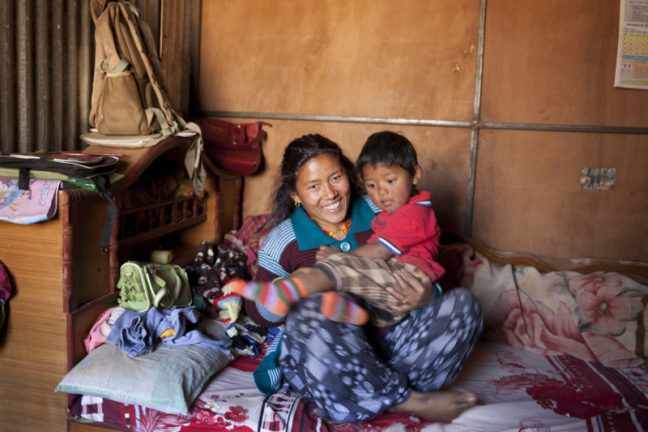
Muna is thankful for the kindness Australians showed in Nepal’s hour of need.
She recalls, “They supported us when we were in such a dire situation. They supported us with blankets, warm baby blankets and clothes.”
Muna adds, “You helped us and I would like to thank you for that. Since you supported us in such a difficult situation, I hope you will continue to support us.”

How you can help
You change the life of someone like Muna today by making a general donation to Oxfam — helping people grow more food, educate their children, and lead healthy, productive lives.
